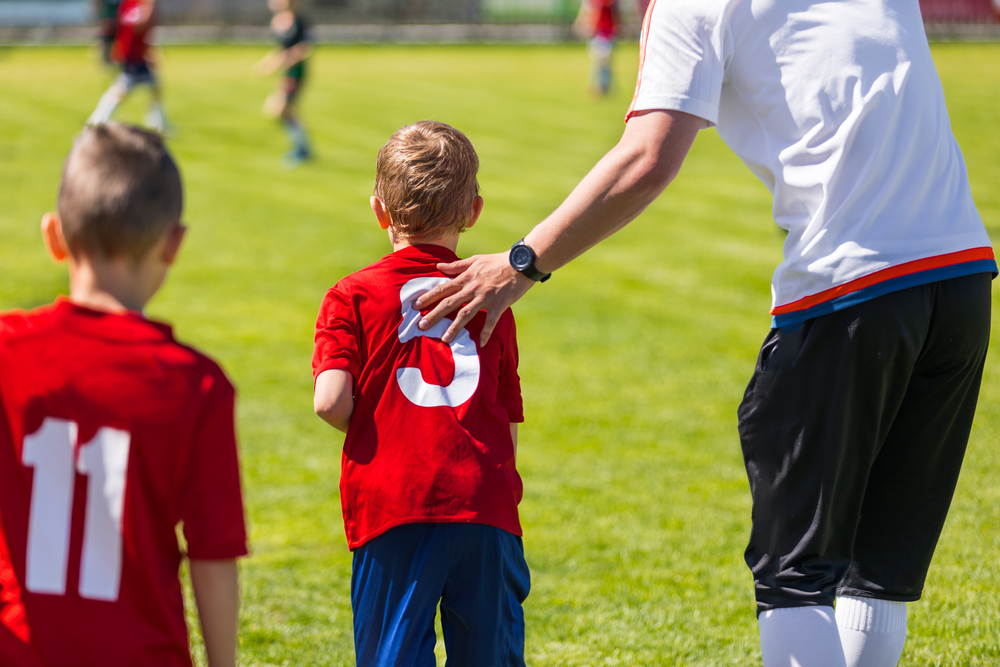
Career pathways – sports coaching
Do you have a passion for supporting individuals reach their goals or motivating others to improve their skills and performance? Then perhaps a career in sports coaching would be the perfect fit for you.
A career in sports coaching is one of the most popular industries in sport, with over three million active coaches in the UK in 2019. Sports coaching can be from toddlers to the elderly, and from basic teaching to elite sport- there are endless opportunities. You could be working one-on-one with an individual in sports like tennis, gymnastics or boxing, or perhaps working with a group of people, with a football, netball or rugby team.
Sports coaches and sports trainers work closely with athletes in primary schools, secondary schools, colleges and universities, and with professional sports teams. Coaches teach the basic skills required in individual or team sports for amateur or professional athletes. Coaches create and manage practice sessions and drills, evaluating players and helping them to improve their skills, techniques, form, and stamina. They’ll also ensure the physical and mental wellbeing of the athletes you work with. They motivate and encourage individuals and teams to improve their performance and have a positive influence on people’s life-long involvement in physical activity. A coach is there for a variety of reasons, but mainly to help people achieve their individual sports/activity goals and to allow different ages and abilities to develop and improve using sport.
Sports Coaching Qualifications and skills
To become a sports coach, you will need to have a coaching qualification that is recognised by the governing body for your sport. There are many routes and qualifications into coaching. There’s a route for everybody, whether you’re coming into it after GCSE’s, at university level, or just fancy a career change ten years down the line. There are many qualifications and training courses you can complete which would allow for you to take on a coaching career in sport afterwards. For example, you could complete a level 1 or 2, complete an activator/leader qualification or a coaching related degree/equivalent diploma. However, it remains that the cost of qualifications and training is the biggest barrier to coaching in the UK, as well as the time it takes.
However, the key skills required in coaching are equally as important as the qualifications, it sets the atmosphere for both you and the players around you. Giving constructive criticism, improving people’s skills or ability and being friendly and approachable are considered the top three factors in what makes a great coach. Bringing all these characteristics into your coaching career significantly elevate your performance and position as a coach as well as your relationships with the players. UEFA pro qualified football coach Richard Horner states that “the number one factor in the success of a coach is being able to build relationships. If you can’t build relationships and you don’t have good people skills you’ll never get the chance to get to the point where you can work with the parts of an athlete’s performance that you need to. It is very difficult to get to the point where you can have the discussions you need to have with people.” It’s also important to remember to be adaptable and able to change to meet the needs of the players you coach, “be consistent in your approach and honest in your dealings with players. If we are consistent, honest, fair and your behaviours remain true we tend to get better at everything we do”. The key thing to remember is to keep improving both the players and yourself. Evaluate every session, what can you do next time to make it better. It’s about learning, adjusting and tailoring your sessions accordingly.
The annual salary for a career in coaching ranges from £20,000 to £40,000 depending on the level of qualification and experience. There’s plenty of room for development and movement within the coaching industry.

Careers in sports coaching
A career in sports coaching is constantly evolving and developing and there are many factors to take into consideration when choosing the type of coaching career you wish to pursue. Factors to consider include, age group you would like to work with, the type of sport, whether its competitively, or merely for leisure and fun. Personal training is also a popular coaching route, allowing you to work independently and create your own specific clientele. Being a personal trainer is highly rewarding and allows you to work on your own schedule that suits you.
When applying for your career in sports coaching it’s important to have an updated and well-presented CV that’s interesting and personal to you. This will be the first thing the employers will see and so creating a good first impression is key. Draw on your own experiences and apply the skills you have learnt to a coaching situation, focus on your specific skills and experiences that would benefit the club or business. Just because someone has a higher qualification than you doesn’t necessarily mean they’ll be a better coach, it’s about how you can apply your skills and bring them into your career as a coach that’s important.
Leading professionals and careers advisers provide tips and guidance to help you stand out from the crowd when it comes to your CV, job interviews and more on our Careers Advice section of our website.
Coaching the professionals vs children
Working as a coach can range from children in primary school, to aspiring young adults and professional athletes. However, it’s difficult to know what career pathway to go down in terms of coaching different ages of people. It is common for coaches in their early careers to start with the younger age groups and work their way up in age as their coaching and expertise develop. A lot of things however do stay the same in regards to coaching different age groups, it’s all about being honest with the players and being authentic to yourself. Kit Symons, a football association manager states that coaching is all about “adapting to that age group, you’re not going to be as brutally honest with the U10’s as you are with the more senior players, but you’re still being honest with them”.


Working as a coach can range from children in primary school to professional athletes
Working with children makes up a large majority of the coaching industry and is an exciting and fun part of the career. Nearly half (45%) of children in the UK aged 7-17 take part in a sport or physical activity every day or most days and so coaching is more important than ever for that age group. The most popular sports and activities led by a coach being undertaken by young people aged 12-17 are football (33%), dance (20%) and swimming (17%). There are also several indications that young participants feel that coaching makes a difference in their lives with nearly all children aged 12-17 agreeing that the coaching they receive helps to improve their skills/performance, and similar proportions say that their coach encourages them to do better and supports them in achieving their goals. The majority indicate that they like or love sport/keeping active and look forward to doing so. It is therefore more important than ever to make coaching an enjoyable and safe place for children to thrive and develop within sport. If the passion and fun are no longer there it can be difficult for them to develop further. Overall, coaching children is a highly rewarding job and has the prospect to greatly impact their lives and future.
Related Article: Ten Ways to Improve your Coaching
In contrast to this, coaching young adults and professional athletes will take a much more intense approach, focusing more on the improvement and technique side of coaching, rather than fun and leisure. With the more competitive and intense side of coaching it’s also more likely to be 1:1 or much smaller groups, compared to the large groups which would be undertaken with a younger, less competitive age range. It’s all about adaptation and adjusting to fit the needs of the players and their needs.
Overall, coaching has the ability to significantly develop both young children’s sports skills and abilities as well as improve the development of the next up and coming sports stars. It’s an extremely rewarding and fast-paced job which lies upon the foundations of good communication and adjusting to others around you.

If you are interested in a career in sports coaching access our webinar on YouTube

